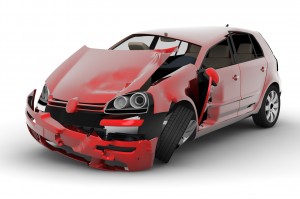Carpal Tunnel Syndrome and Auto Accidents
 When most people think of carpal tunnel syndrome, they think of an injury that is caused by repetitive strain. They assume that those who suffer from this injury are people who excessively and repetitively use their wrists, hands and fingers doing jobs that involve things like typing, working on assembly lines, packaging and other related tasks. However, you can also suffer from carpal tunnel syndrome (CTS) following an auto accident. Though most people wouldn’t think so, it’s actually a fairly common injury sustained during an accident.
When most people think of carpal tunnel syndrome, they think of an injury that is caused by repetitive strain. They assume that those who suffer from this injury are people who excessively and repetitively use their wrists, hands and fingers doing jobs that involve things like typing, working on assembly lines, packaging and other related tasks. However, you can also suffer from carpal tunnel syndrome (CTS) following an auto accident. Though most people wouldn’t think so, it’s actually a fairly common injury sustained during an accident.
During a car accident, most people instinctively brace themselves with their arms and hands. Grasping the steering wheel as tightly as possible, they brace themselves for impact. The same principle applies when we trip and fall. If we trip over something, we use our hands to break the fall, it’s a natural reaction. Wanting to protect our faces and torsos, when we are rear or front ended, we will use our arms to lessen the impact on more sensitive areas of our body, and of course, lessen the pain. What is scientifically happening here is that when impact occurs and your head is jolted, the connective tissue and muscle structures seize up to protect you. They then stay tight, and this is when ripping and tearing in tissue and muscles occurs, causing carpal tunnel syndrome. In simple terms, it is the amount of stress placed on the wrist that does damage and tears ligaments and tendons around the median nerve.
Not so many people are aware that a car accident can cause CTS and even some doctors are unaware of the risk of this condition after an auto accident. Commonly believed to be an injury related to repetitive stress, it often go unnoticed and undiagnosed. What is even more difficult is the fact that in the beginning, there aren’t many glaring symptoms and this is where the biggest risk lies. As the ligaments and tendons begin to heal, scar tissue starts to build up and impinge on the nerve, which results in feelings of numbness, pain, tingling and weakness.
Even though it is difficult to diagnose the injury, there are some symptoms that if paid attention to, can save you from a lots of pain and discomfort in the long run. Some of the symptoms include:
- numbness, tingling, or burning sensations
- loss of dexterity in the thumb or fingers
- pain in the hand, sometimes going up to the arm and shoulder
- weakness or an inability to grasp or pinch
- frequent dropping of objects
If after a car accident, you feel any of those symptoms then it is best to seek the advice of your doctor and a chiropractor. Your chiropractor will know exactly what tests need to be done to determine whether or not you have suffered CTS and then begin the healing process. Injuries related to nerves, bones and joints should not be left, each connects to another and the longer it is left, going undiagnosed, the more serious damage may be done to the area in question, and other parts of the body in the future.
